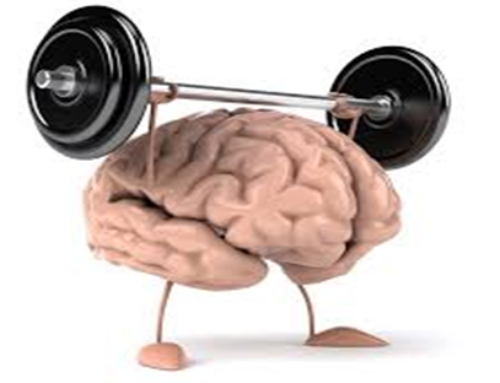Quality vs. Quantity?
Have you ever wondered what happens when you sleep? Think about it! You know you absolutely cannot live without it, you can’t even function properly when you haven’t had enough, so what actually happens to your brain and body when you sleep, and how much does it affect our day?
Before we go into this and the importance of it lets first understand the relevance here. It is estimated that as many as 80% of Australians are experiencing some issue with sleeping which is negatively impacting their waking life, and studies from the Boston Consulting Group in 2003 found that almost 90% of Australians suffer a sleep disorder and 30% suffer a severe sleep disorder, at some point in their lives. New statistics from the Pfizer Australian Health Report shows almost 10% of Aussies turning to sleeping tablets to help them cope with the nations rising rate of sleep debt.
Symptoms:
So, other than the obvious midmorning yawn, how do you know if you’re overtired? Some of the signs and symptoms of sleepiness are: daytime drowsiness, trouble concentrating, irritability, increased risk of falls and accidents, poor decision making, lower productivity, moodiness and disinhibition. Many of these can lead to apathy, slowed speech and flattened emotional responses, impaired memory, and an inability to be multitasked. A sleep deprived person can experience periods throughout the day when they get close to falling asleep and will fall into micro sleeps (5-10secs) that causes lapses in attention, nod off while doing an activity (like driving) and often experience mild, dream-like hallucinations. There is also a link between sleep deprivation and depression that is absolutely alarming, and not only depression but also other psychiatric disorders such as SAD, and bipolar disorder.
Sleep benefits to mood and memory:
It is well accepted that sleep effects ones mood very strongly. What is not as well known is that in certain stages of sleep, which we’ll talk on soon, the brain goes through a period of sorting through and categorizing the emotions and memories of the day (have you ever noticed that we dream in metaphor?). This has a very important role in the health of your emotions. Proper sleep helps to organize memories, solidify learning’s, regulate mood and improve concentration.
Sleep also benefits:
- Your immune system – Without proper sleep your immune system is deprived and you are more prone to infection and disease.
- Nervous system – Sleep is shown to be one the best times for the rest and repair of neurons.
- Hormone release – Certain hormones are timed to release during sleep which are impaired, of course, if adequate sleep is impaired. (Eg, growth hormone.)
Sleep Needs and Cycles:
Individual sleep requirements often vary greatly. In general though, most adults function best with 16 hours of wakefulness during the day and 7-8 hours sleep at night.
In these periods of sleep we go through several stages of sleep where our brain activity changes in cycles. Understanding these sleep cycles and needs and how they work can help a person improve their patterns of sleep for best effect and to perform at peak ability more consistently.
Stages of Sleep:
There are 5 main stages of sleep – REM (rapid eye movement) and 4 stages of NON-REM that involve progressively deeper and deeper levels of sleep.
- REM – In this stage your eyes move back and forth rapidly under the eyelids (hence the name), it is also where you do most of your dreaming. We usually have 3-5 REM cycles per night, especially towards morning. This is the main stage associated with processing emotions, organizing memories, and relieving stress. Breathing is rapid, irregular and shallow. Heart Rate increases, blood pressure rises, and male and female genitals may engorge with blood. Better REM sleep will help improve mood throughout the day.
- Stage 1 – Characterized mostly by drowsiness, eyes move slowly, muscle activity slows down and you are easily awakened.
- Stage 2 – light sleep, eyes stop, heart rate slows, body temperature decreases.
- Stage 3 + 4 – deep sleep, you are difficult to awaken, you feel groggy and disorientated if awakened from this sleep. Blood flow is increased to the muscles in this stage to restore physical energy. Immune functions also increase during deep sleep.
Quality vs Quantity:
The stages of sleep explain why there is a difference between quantity and quality. While we may get the required hours of sleep throughout the night, if they are interrupted or our cycles are not permitted the chance to cover all stages we can still lack in quality of sleep. Conversely, one may not get the ideal hours of sleep but if the hours they do get are of high quality they may find it is suffice and even preferable over longer, lower quality sleep.
Our sleep needs and these sleep stages that we cycle through are influenced very strongly by our in-built biological clock (our circadian rhythm). In addition, there is a chemical called Adenosine that is involved in energy supply (ATP) which also acts as a neurotransmitter to signal sleepiness to the brain. When Adenosine builds up in our systems (from every hour being awake and even more so from exercise/activity), the increased concentration acts as a strong messenger for the body/brain to sleep. So, the more active you are the better sleep you’ll get!
How to get a good nights’ sleep:
- Keep a regular circadian rhythm (up time and down time)
- Get regular exercise
- Minimize noise and light (the body’s sleeping rhythm is sensitive to light)
- Don’t consume caffeine or alcohol 4-5 hours before bed
- Avoid alcohol and heavy meals before bed
- Don’t smoke!
- To improve Deep sleep – aim to go uninterrupted (hard if you have a new-born or are a carer around the clock.
- To improve REM sleep – aim to sleep a little longer in the mornings.
When your body works well – you sleep well.
When you sleep well – your body works well





